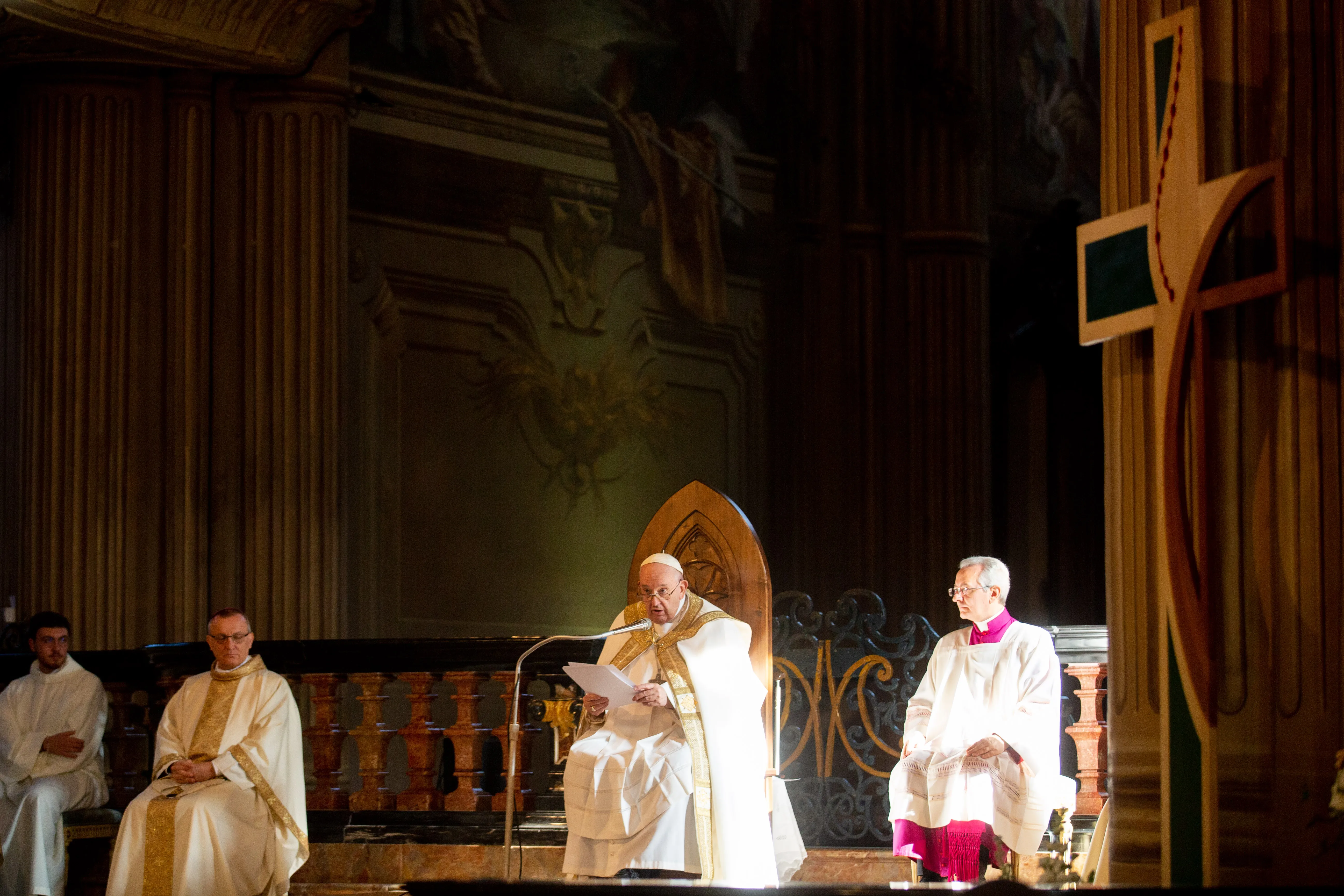Every year on the last Sunday in Ordinary Time, the Catholic Church observes the solemnity of Our Lord Jesus Christ, King of the Universe — also known as the feast of Christ the King — a relatively recent addition to the Church’s liturgical calendar, instituted just under a century ago by Pope Pius XI.
In his 1925 encyclical Quas Primas, Pius XI argued that the “manifold evils in the world were due to the fact that the majority of men had thrust Jesus Christ and his holy law out of their lives” and that “as long as individuals and states refused to submit to the rule of our Savior, there would be no really hopeful prospect of a lasting peace among nations.”
The U.S. Conference of Catholic Bishops notes on its website that, around the time of Pius XI’s encyclical, “in Mexico, Russia, and some parts of Europe, militantly secularistic regimes threatened not just the Catholic Church and its faithful but civilization itself.”
Indeed, just several years before Quas Primas, the Bolsheviks in Russia had executed the October Revolution, which touched off a series of events that would ultimately lead to the creation of the Soviet Union in 1922. The Soviet government would establish itself as an explicitly secular state and implement severe restrictions on religious freedom and aggressive persecution of religious believers in the coming decades.
Amid those upheavals and turbulent regime changes, Pope Pius XI in his encyclical argued that “men must look for the peace of Christ in the kingdom of Christ.”
To that end, Pius XI announced “the insertion into the Sacred Liturgy of a special feast of the kingship of Our Lord Jesus Christ,” which he hoped would be “attended with much fruit and produce beneficial results in the future.”

Jesus, Pope Pius XI said, had long been accorded the title of “King” due to “the metaphorical title of ‘King,’ because of the high degree of perfection whereby he excels all creatures” but also in “the strict and proper sense too.”
Pius went on: “For it is only as man that he may be said to have received from the Father ‘power and glory and a kingdom,’ since the Word of God, as consubstantial with the Father, has all things in common with him, and therefore has necessarily supreme and absolute dominion over all things created.”
That Christ’s blessings may be spread as abundantly as possible, “it is necessary that the kingship of our Savior should be as widely as possible recognized and understood,” Pius XI wrote; to that end, “nothing would serve better than the institution of a special feast in honor of the kingship of Christ.”
“If we ordain that the whole Catholic world shall revere Christ as king,” the pope wrote, “we shall minister to the need of the present day and at the same time provide an excellent remedy for the plague which now infects society.”
The pope established the feast as falling on the last Sunday of the month of October. In his 1969 motu proprio Mysterii Paschalis, Pope Paul VI approved the new Roman Universal Calendar, creating the norms by which the final Sunday in Ordinary Time is celebrated as the yearly observance of the feast of Our Lord Jesus Christ, King of the Universe. It is the final Sunday of the liturgical year, the last Sunday before the first Sunday of Advent.
In a 2021 homily, Bishop Robert Barron said the feast “sums up what the Christian life is all about.”
“All the other celebrations of the year,” Barron said, are “... leading you toward that conclusion, that Christ must be king.”
“If we say anything but that,” he said, “we are basically horsing around with Christianity and not living it seriously.”
In a homily on the solemnity in 2021, Pope Francis said that Jesus became man “without duplicity, in order to proclaim by his life that his kingdom is different from the kingdoms of the world.”
“His is the kingdom of love,” the Holy Father said, describing Christ as the king “of the kingdom of those who give their lives for the salvation of others.”
In his 1925 encyclical, meanwhile, Pius XI wrote that if the truths of Christ “are presented to the faithful for their consideration, they will prove a powerful incentive to perfection.”
The pontiff expressed his hope that “having lived our lives in accordance with the laws of God’s kingdom, we may receive full measure of good fruit, and counted by Christ good and faithful servants, we may be rendered partakers of eternal bliss and glory with him in his heavenly kingdom.”
"lasting" - Google News
November 25, 2023 at 09:00PM
https://ift.tt/KnZ48B6
Christ the King: Pope Pius XI’s Hope for ‘Lasting Peace Among the Nations’ - National Catholic Register
"lasting" - Google News
https://ift.tt/8KTQdRr
Shoes Man Tutorial
Pos News Update
Meme Update
Korean Entertainment News
Japan News Update
Bagikan Berita Ini














0 Response to "Christ the King: Pope Pius XI’s Hope for ‘Lasting Peace Among the Nations’ - National Catholic Register"
Post a Comment